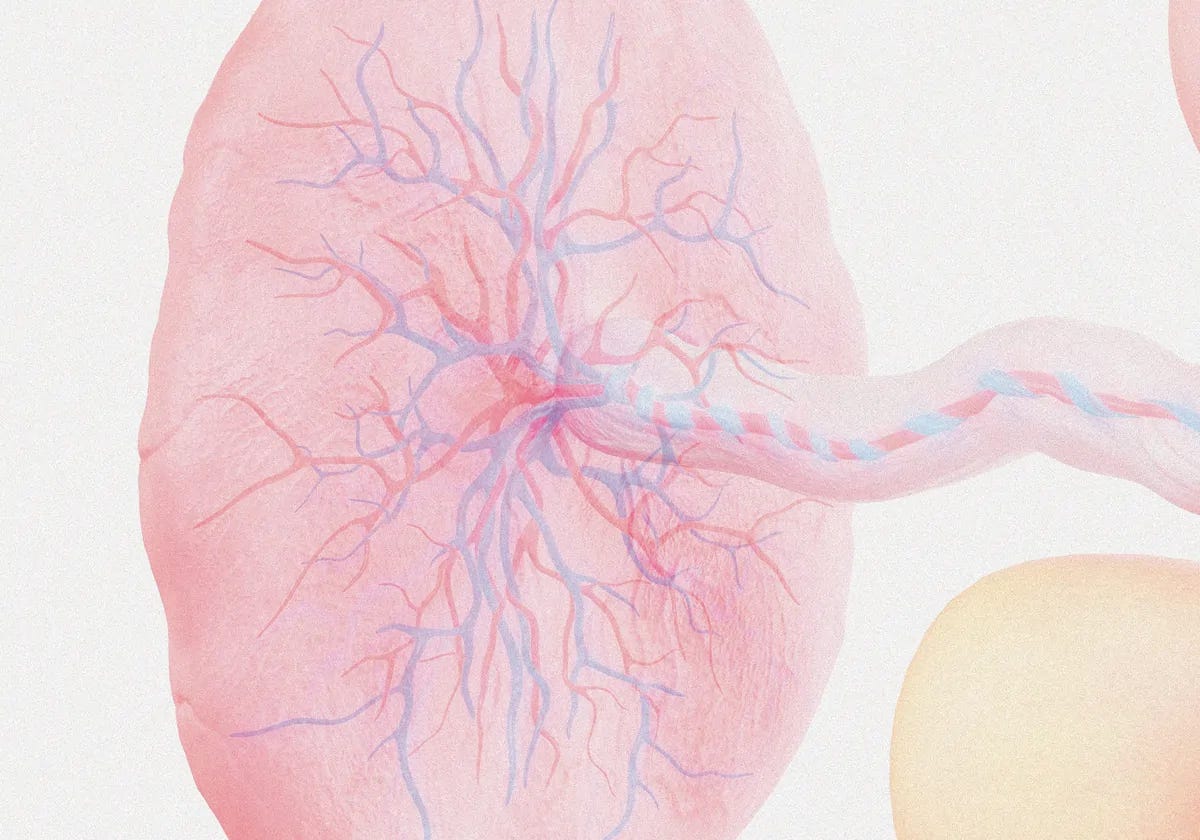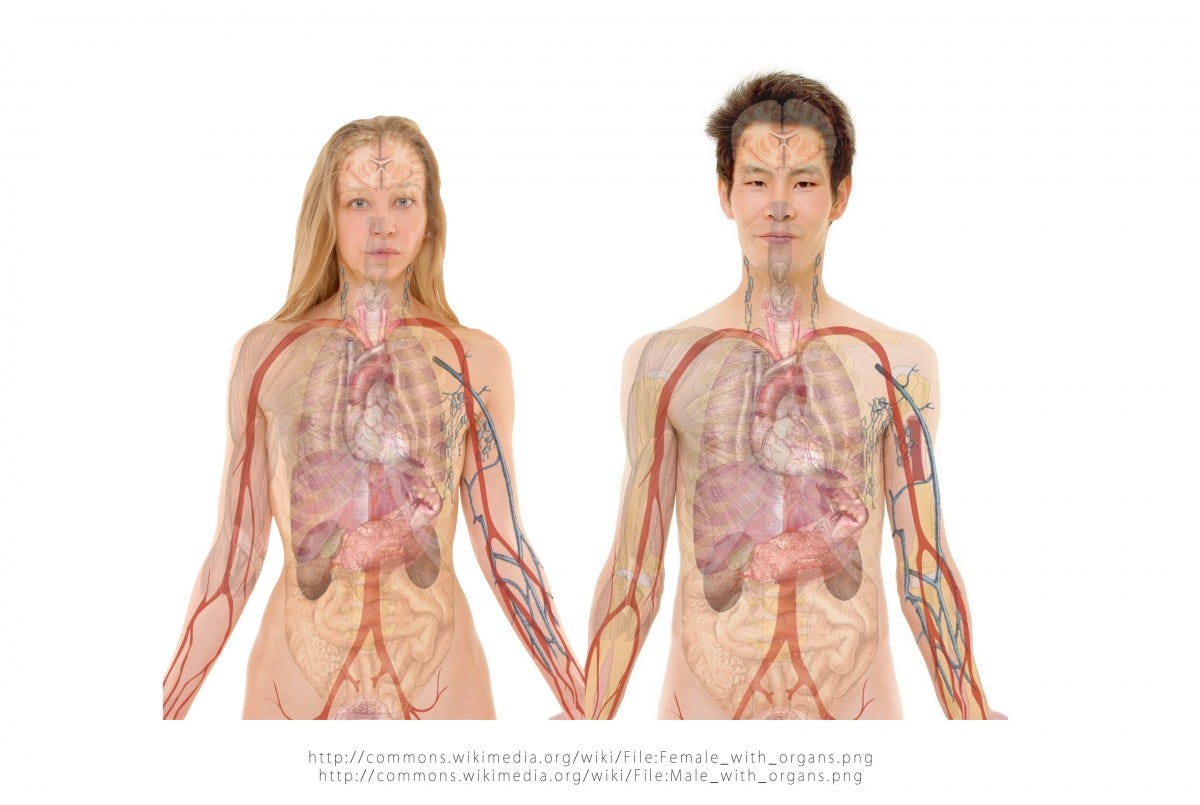Sci-Ed Update 305
Gene editing approved, organ system debates, textile nature of tissue, learning histology, course evaluations are garbage, placenta, mood affects flu shot, student excuses, smell training. more!
FDA approves first gene-editing treatment for human illness

In a landmark decision, the Food and Drug Administration Friday approved the first gene-editing treatment to alleviate human illness.
The FDA approved two gene therapies for anyone 12 and older suffering from the most severe form of sickle cell disease, a brutal blood disorder that has long been neglected by medical research.
The decisions are being hailed as milestones for treating sickle cell and for the rapidly advancing field of gene therapy, which is stirring excitement for treatment of many diseases.
"Sickle cell disease is a rare, debilitating and life-threatening blood disorder with significant unmet need, and we are excited to advance the field especially for individuals whose lives have been severely disrupted by the disease by approving two cell-based gene therapies today," said Dr. Nicole Verdun, director of the Office of Therapeutic Products within the FDA's Center for Biologics Evaluation and Research, in statement. "Gene therapy holds the promise of delivering more targeted and effective treatments, especially for individuals with rare diseases where the current treatment options are limited."
Read more→ AandP.info/j2g
The Great Organ Systems Debates
Facilitating the learning of physiology by non-majors who lack foundational coursework in biology and chemistry presents unique pedagogical challenges. By instead focusing upon the strengths of this group of learners (team skills, interest in applied physiology), a new mechanism for conveying the primary interconnection and synergism of the body's organ systems was developed: The Great Organ Systems Debates.
After learning sequentially about the primary organ systems, the Debates are a culminating, integrative experience, where students "debate" the relative importance of their system in different situations. Used and refined over six years, it is an engaging, interactive and effective learning tool that could be adapted to almost any level of instruction.
Read more→ AandP.info/8g5
A keratin code defines the textile nature of epithelial tissue architecture
We suggest that the human body can be viewed as of textile nature whose fabric consists of interconnected fiber systems. These fiber systems form highly dynamic scaffolds, which respond to environmental changes at different temporal and spatial scales. This is especially relevant at sites where epithelia border on connective tissue regions that are exposed to dynamic microenvironments.
We propose that the enormous heterogeneity and adaptability of epithelia are based on a “keratin code”, which results from the cell-specific expression and posttranslational modification of keratin isotypes. It thereby defines unique cytoskeletal intermediate filament networks that are coupled across cells and to the correspondingly heterogeneous fibers of the underlying extracellular matrix. The resulting fabric confers unique local properties.
Kevin Patton comment→ I think a lot of us use the analogy of fabrics to discuss human histology. The thing is, it’s not really an analogy so much as it is an actual explanation of how things are.
Read more→ AandP.info/mno
Why Do A&P Students Hate Histology? And How Do We Fix That?
Host Kevin Patton discusses the fact that many students hate histology. And perhaps even some faculty. Are there any ways to fix that? Kevin thinks he may have found a breakthrough idea.
00:00 | Introduction
01:20 | Sponsored by AAA
02:25 | Why Do Students Hate Histology?
16:27 | Sponsored by HAPI
17:06 | Birding For Tissues
39:15 | Sponsored by HAPS
40:14 | A Breakthrough
51:25 | Staying Connected
To listen to this episode, click on the play button above ⏵ (if present) or this link→ theAPprofessor.org/podcast-episode-113.html
The Ephemeral Life of the Placenta

We have all had one, and we owe our lives to it. It’s the first organ to develop and it simultaneously serves as the lungs, kidneys, immune system, and digestive tract, to name a few, in a fetus while it develops these systems. Despite being one of the most important organs, the placenta is one of the least understood.
“It’s such a fascinating organ,” said Norah Fogarty, a developmental biologist at King’s College London. “We know so little about it, but there’s also this kind of intrigue about the placenta.” This mysterious organ has inspired lore and customs for centuries.
Read more→ AandP.info/uhx
The Review: Course evaluations are garbage science.
In a recent essay in our pages, the Cornell psychologists Wendy M. Williams and Stephen J. Ceci review evidence about sexism in the academic sciences and find that, in most areas — hiring and promotion, grants, and salary — there’s much less of it than is often supposed. But they note one exception: students’ teaching evaluations. “The fact that teaching ratings are sexist,” they write, “is valuable information, suggesting that the use of these ratings should be carefully considered.”
Williams and Ceci’s meta-analysis of “a very large number of studies across all academic fields” provides further quantitative grounding for what everyone already knows: Teaching evaluations are a mess. As David Delgado Shorter has discussed, also in our pages, the evidence that teaching evaluations reflect racial and gender bias on the part of students dates back over 40 years. Even more damning, “good” student evaluations may be negatively correlated with academic achievement. According to Bill Harbaugh, an economist at the University of Oregon who has studied the matter, students enrolled in classes taught by professors with high student ratings actually learn less.
The most comprehensive recent analysis of the situation is Wolfgang Stroebe’s widely cited 2020 article in Basic and Applied Social Psychology, whose title says it all: “Student Evaluations of Teaching Encourages Poor Teaching and Contributes to Grade Inflation.” Teaching evaluations, Stroebel concludes, fail to measure actual learning, illegitimately reward teacher attractiveness, penalize minorities and women, and trigger cascading grade inflation. And because “there is evidence that faculty members in precarious positions (e.g., young tenure-track faculty) will be particularly motivated to improve the ratings they receive for their course by grading leniently,” teaching evalutations corrupt the classroom at its root. As a junior faculty member said to me earlier this month, “I’ve arrived at the point of the semester where I consider giving everyone a big grade boost on their last paper to juice my pre-tenure-review evals.”
Read more→ AandP.info/jk4
Why your mood could affect your flu shot
Silly cat videos could be good for your health — at least if you are about to get one of the seasonal vaccines.
For instance, when people who were in a positive mood got a flu shot that day, they produced higher levels of antibodies to help them fight the disease, according to one British study.
This data on mood and vaccines is limited, but a substantial body of research shows many other lifestyle factors — such as diet, exercise and even social interactions — may affect how much protection people get from vaccines, including, it appears covid-19 jabs.
Read more→ AandP.info/6sl
Undergraduate Excuses, Used in Other Contexts
“Owing to the death of my grandfather—whom I loved dearly—I will not be able to land the plane. Thank you for your understanding.”
“Because I am literally stuck in traffic at this very moment, I will not be able to perform your heart surgery this morning. Would it be possible to get an extension? Let me know.”
“I went to the wrong building, and I totally just did someone else’s taxes. So sorry—my bad!”
“Owing to the death of my boyfriend’s grandfather—whom I loved dearly—I will not be able to finish filling your cavity. Thank you so much for your compassion.”
Read more→ AandP.info/ygp
‘Olfactory Training’ during Sleep Could Help Your Memory
Smell is probably our most underappreciated sense. “If you ask people which sense they would be most willing to give up, it would be the olfactory system,” says Michael Leon, a neurobiologist at the University of California, Irvine. But a loss of smell has been linked to health complications such as depression and cognitive decline. And mounting evidence shows that olfactory training, which involves deliberately smelling strong scents on a regular basis, may help stave off that decline. Now a team of researchers led by Leon has successfully boosted cognitive performance by exposing people to smells while they sleep. Twenty participants—all older than 60 years and generally healthy—received six months of overnight olfactory enrichment, and all significantly improved their ability to recall lists of words compared with a control group. The study appeared in Frontiers in Neuroscience.
Read more→ AandP.info/4xa
Chronobiologist and Nobel Laureate in Medicine Michael Rosbash: ‘Lack of sunlight during the day is worse than electric lighting at night’
Q. How does electric light, which we even take to bed with us with our screens, contribute to chronodisruption?
A. It is a problem, but it is difficult to estimate its severity. We are exposed to too much light at night and not enough during the day because indoor electric lighting is far inferior to sunlight. In fact, according to recent research, a lack of sunlight during the day is even worse than the presence of light at night. Many cases of sleep problems are cured by addressing these environmental factors.
On the other hand, research conducted in Colorado on people who camp out in nature for a couple of weeks found that they sleep better, go to bed when it gets dark and wake up earlier. There are also studies in Brazil comparing those who stayed in the jungle with those who moved to the city. They are like us, they sleep worse, they go to bed later; you can immediately see the change in pattern. All of them, like you and me, are slightly sleep deprived. If the lights go out in a seminar room at 4 p.m., half the audience is snoring right away. That does not happen with well-rested individuals. It’s a totally sleep-deprived culture.
Read more→ AandP.info/cr4










